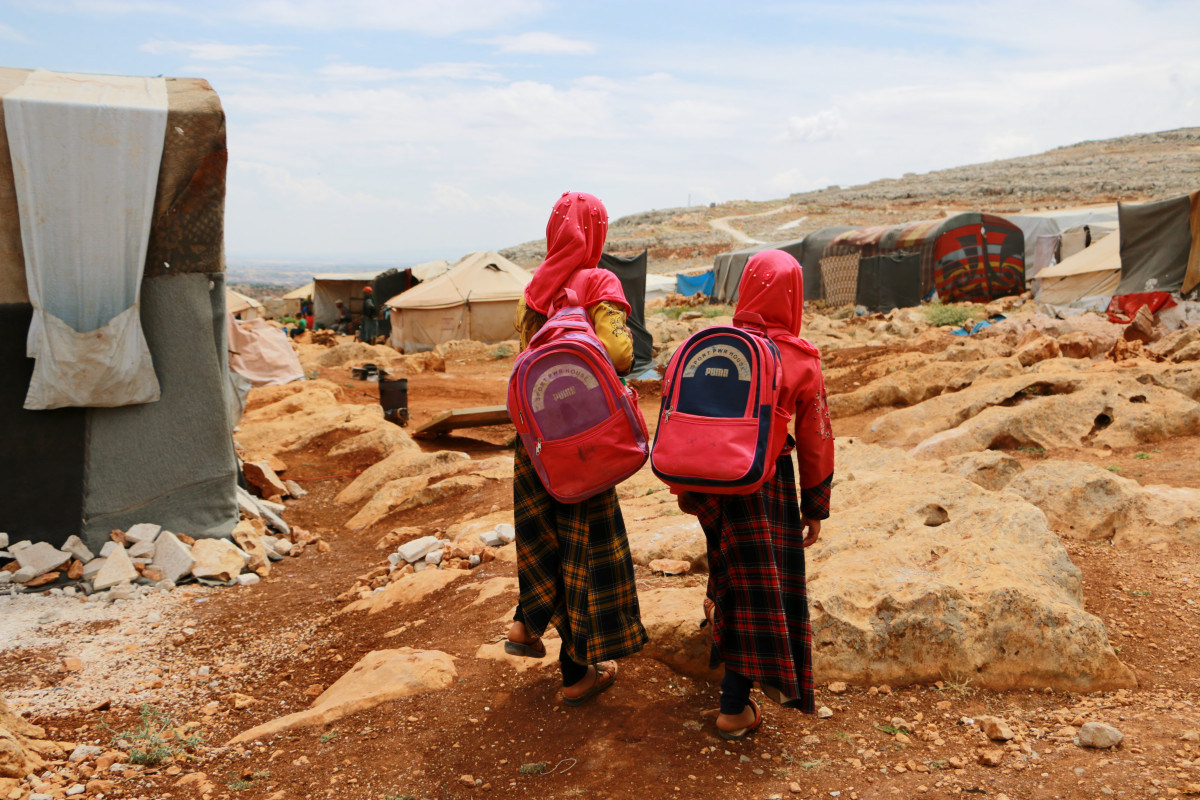Through the Eyes of a Child: Stories of Displacement from Syria
Published: May 29, 2023 Reading time: 4 minutes Share: Share an articleChildren who experience trauma at a young age are at risk of it shaping their most formative years. In northwest Syria, the most common traumatic event for children is displacement. Being torn from their homes, friends, and lives can leave deep emotional scars that are difficult to heal.

We spoke to two children – students at PIN-supported schools in northwest Syria – who had been displaced earlier in their lives. They carry the memory of their displacement with them wherever they go. Their lives have been altered forever by a war they could never fully understand; a war they can only try and make sense of from a child’s perspective. They left their homes, friends, books, and toys behind, not knowing they would never return.
Yasmine
I am Yasmine and I am eleven years old. I am from Tal Tuqan. I have four brothers and five sisters. We have been displaced for four years. It was much nicer back there at our old home. We were displaced from our town because of the war and shelling. We left our house at dawn, in the winter when it was foggy.
When we came here, my mother gave birth, so I had to stay home to help take care of my younger siblings rather than go to school. I would watch the other children walk to school with their bags and books, and it made me want to go too. Eventually, after a year, I was able to return to education - it was a great feeling going back to school. I like Arabic the most, and I am very good at it. We also study English, maths, and science.
If I could change one thing in my life, I would go back home. I would build a new house for my family to protect them.
Isra
I am Isra and I’m in the fifth grade. I have seven siblings: four sisters and three brothers.
My village, Tal Korsian, was shelled a lot. I used to love going to school there, but many times the shelling would hit very close to us. One of the boys in the ninth grade had his eyes injured by shrapnel while he was playing outside. When the shelling started, the teachers would guide us to a safe place so we didn’t rush or panic. It was always very terrifying. We would flee and hide under the trees to protect ourselves from the shrapnel. We had to be away from the buildings and hide near the trees.
We only brought a few mattresses and clothes and left everything else behind. We went from place to place, and I was only able to attend school for a short time during that period. Eventually, we came to the camp where we live now.
I lost contact with my best friends Fatima and Hanin from my old village. It’s hard to be apart form my old friends, but I like the new school here. At first, the school classrooms were only tents made of cloth. When it was windy, the tents would shake so much I thought they would blow away. In the summer, it was hot and dusty inside, but I didn’t mind because I wanted to come to school and learn.
Eventually, the tents were replaced with concrete classrooms. It is much better now. We have fans to cool the classrooms in the summer and heaters to make it warm in the winter. The teachers are very good – they teach us Arabic, maths, and English.
Supporting Futures with Schooling
For children whose lives have been shaken by conflict and trauma, returning to education is a major step in regaining stability. New friendships are formed and positive memories are made as children are given a solid foundation on which to build their lives. Using funds from the Swiss Agency for Development and Cooperation, PIN is supporting education in northwest Syria by constructing and rehabilitating schools and distributing supplies for teachers and students.



